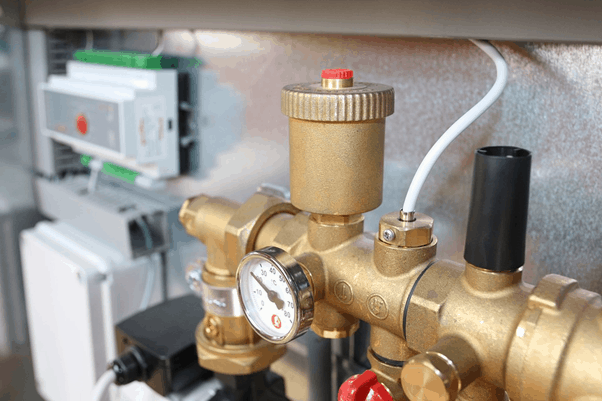Ever wondered how a heat pump works? Heat pumps are an alternative to furnaces in the winter. They also cool your home during the summer months. They are excellent for increasing your energy efficiency, reducing dependence on fossil fuels, and providing you with complete control of your comfort. Find out what they are and why you should install one in your home!
Heat Pumps – The Basics
A heat pump works by transferring thermal energy from one place to another. It can transfer both heat and cold. The zeroth law of thermodynamics states when two objects are at the same temperature, no heat will flow between them. That’s what a heat pump does – a Heat Pump System transfers thermal energy from the cool side of the pump to the warm side. The pumps can also transfer heat in both directions, depending on what you want them to do.
How Do Heat Pumps Work?
The outside unit of a heat pump includes an electric motor and a small fan inside it. It is called the condenser. Inside the condenser, there is a series of coiled copper tubes that contain the refrigerant. The compressor sits next to the condenser. It compresses and releases the refrigerant, causing it to heat up or cool down as necessary.
The refrigerant enters the coils inside the condenser at low pressure and exits at high pressure after passing through the compressor. A fan blows air across the condenser coils and into your home. If you’re using a heat pump to cool your home, the refrigerant enters the outside coil as gas and exits as a liquid after absorbing heat from inside your home. The refrigerant then passes through an expansion valve where it shrinks in volume and lowers its pressure, which causes its temperature to rise. It enters the coils inside the condenser at a high temperature and exits as a gas. A fan blows air across these hot coils and into your home.
Once in your home, the now cool refrigerant absorbs heat from your home and becomes a liquid again as it passes through the expansion valve. It then returns to the compressor where it begins this cycle all over again until it is shut off or until you decide you need maximum cooling/heating distribution in your home.

How Do I Know If I Have A Heat Pump?
A heat pump can be identified by looking for an outdoor unit combined with one or more fans and an indoor unit that has vents coming out of your wall or ceiling: these are the parts of a heat pump system. There may also be a water line hookup for a drain.
Heat Pumps – The Benefits
Residential homes with central heating or cooling systems use 30% more energy than those that have geothermal heat pumps. A geothermal heat pump can reduce your heating and cooling bills by as much as 50 to 70 percent. So what are the benefits of installing one in your home?
Increases Home Value – Geothermal heat pumps make your home more energy-efficient, which will give you savings on monthly utility costs and increase its value
Saves You Money – Heat pump systems save homeowners money because they only transfer heat when they need it. A regular furnace heats a home 24 hours per day, wasting energy and money if the house is not occupied
Lowers Carbon Footprint – Geothermal heat pumps reduce your carbon footprint and dependence on fossil fuels by taking advantage of the Earth’s natural resources.
How To Choose A Heat Pump
Heat pumps work best in moderate climates year-round, where temperatures range between 20 degrees Fahrenheit in the winter to 80 degrees in the summer. If your climate does not meet these requirements, you may want to look into heating or cooling alternatives for your home. Measure the square footage of your home before deciding what size of a heat pump is right for you. Keep in mind that heat pumps are most efficient when they are operating at 50-60% capacity. Make sure you purchase one that can properly heat or cool your home without wasting energy.
The cost of installing a geothermal heat pump maybe a little more expensive than a traditional system, but the savings that most homeowners see on their monthly utility bills will make up for this. With proper care and routine maintenance, your heat pump should last 15-20 years or longer. Because of its lower operating costs, reduced environmental impact, and other benefits to homeowners, many states offer tax credits or rebate programs if you install this type of system in your home.
So what are you waiting for? Take charge of your comfort this winter with a geothermal heat pump! Want to know even more about how does a heat pump work? Get an estimate for one now!

Recent Comments